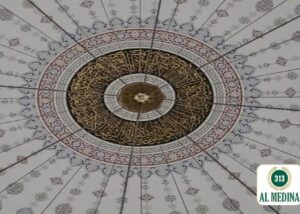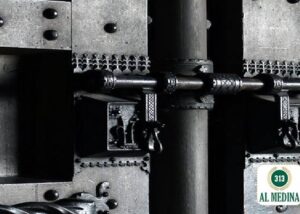Quran
Hadith
Islamic Text
People emphasise the last ten days of Ramadaan because it is Sunnah to increase efforts in the last ten days. Another reason is the strong possibility of Laylatu al-Qadr being in these nights.
عَنْ عَائِشَةَ رَضِيَ اللَّهُ عَنْهَا، قَالَتْ: كَانَ النَّبِيُّ صَلَّى اللهُ عَلَيْهِ وَسَلَّمَ إِذَا دَخَلَ العَشْرُ شَدَّ مِئْزَرَهُ، وَأَحْيَا لَيْلَهُ، وَأَيْقَظَ أَهْلَهُ
(Sayidah) Aishah (May Allah Most High be pleased with her) said, ‘When the last ten days of Ramadan began, the Prophet ﷺ tightened his waist-wrapper, prayed during the night, and woke his family.’ (Sahih al-Bukhari, 2024).
The entire month of Ramadan is a blessed period. However, special emphasis has been placed upon the last ten days. Not only is this done due to Hadith narrations, like the one above, establishing it as a Sunnah. But also due to the strong possibility of Laylatu al-Qadr being in these nights. This is not to say that one should not make an effort in the first twenty days of Ramadan. Rather, one should make an effort throughout the month, but there should be an intensification of efforts in the last ten days.
إنما فعل ذلك عليه السلام؛ لأنه أخبر أن ليلة القدر فى العشر الأواخر، فَسَنَّ لأمته الأخذ بالأحوط فى طلبها فى العشر كله لئلا تفوت. (شرح صحيح البخارى)
He ﷺ done that (increased efforts in the last ten days of Ramadan), because he ﷺ was informed that Laylatu al-Qadr was during the last ten nights. So he ﷺ established a Sunnah for his Ummah to seek it (Laylatu al-Qadr) in all ten nights so that it is not missed, as this was most cautious. (Imam Ibn al-Bataal, Sharh Sahih al-Bukhari).
And Allah Most High Knows Best.
-Answered by Shaykh Noorud-deen Rashid (19.04.2022)
See also:
When is Laylatu al-Qadr
See also video:






